The 2014/15 Oscar Season: Classics of Future Past
As 2014 heads towards the finish line, cinema-goers are now wallowing in a shrill state of limbo. Having lately been given duds like Teenage Mutant Ninja Turtles and Into the Storm to dwell over, we have no choice but to clamour for more intelligent material. Luckily, the winter months are set to deliver some of the year’s best and brightest features. This Academy Awards season, delivering that which the studios have deemed worthy of consideration, are about to come crashing through cinema screens the world over. This year, movies like Foxcatcher, Birdman, and The Imitation Game are breaking out from the pack. In addition, we’ve got Gone Girl, Unbroken and Into the Woods nipping at their heels. As the switch between September schlock and October/November gold commences, critics and bloggers everywhere prick up their ears in anticipation and start bashing their keyboards. However, with this season passing all to quickly today, previous winners and nominees have cast major shadows over the industry. With cinema itself changing so rapidly, how exactly have these movies held up? With many Oscar seasons defined by major hits and misses, I decided to look back over recent years to see where some of these winners and losers are now.
2007 – Winner: No Country for Old Men
Other nominees: Atonement, Juno, Michael Clayton, There Will Be Blood
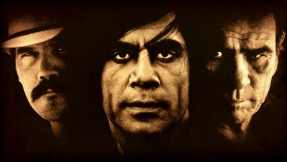
2007 was certainly an interesting and game-changing year for cinema. Beyond the big-hitting blockbuster season, featuring SEVEN threequels including Spider-Man 3 and Pirates of the Caribbean: At World’s End, the world bore witness to a new turning point for Hollywood’s crime-drama and dramedy entries. This particular year’s nominees have become evidence of Tinseltown’s significant shift into full-blown maturity.
Atonement was honoured as a period piece unafraid of getting down and dirty in WWII politics. The love story/war drama hybrid launched the careers of James McAvoy, Saoirse Ronan, and director Joe Wright. Juno, birthed and bred from exotic dancer turned writer Diablo Cody, examined the best and worst aspects of pregnancy. However, on the other side of the coin, Michael Clayton and There Will Be Blood aimed straight for the adult audience. There Will Be Blood, the second best of the bunch, punished America for its unrelenting desire for oil reserves.
However, none of these home-run hitters have matured quite like No Country for Old Men. Despite being the deserved winner, this movie has become a polarising slice of Hollywood violence. With many critics and film-goers criticising its ambiguous final third, the movie has still never truly received enough credit. Split into three story-lines, the narrative chronicles the overlapping lives of three badasses. The narrative, flipping back and forth between darkly comedic, sickeningly dark, and profoundly philosophical, is as cruel and fascinating as its wondrous desert settings and punchy dialogue. With such talents as Josh Brolin and Tommy Lee Jones playing the good guys, it’s difficult not to become sucked into their characters’ overwhelming arcs. In fact, Brolin – making a huge carer comeback – is electrifying as the lowly anti-hero. However, as far as career launchpads are concerned, Javier Bardem is the real star of the show. Crafting an unforgettable antagonist, Bardem’s signature acting style comes across in each haunting frame.
No Country for Old Men, if anything, marks significant turning points for its actors and writer/directors. Brolin, now recognised a multi-talented leading man, is now a major blockbuster drawcard. In addition, Bardem – having blitzed the antagonist role – was handed the Bond villain role in the hugely successful Skyfall. Above all else, the movie marks Joel and Ethan Coen’s return to form. For some reason, in the early/mid 2000s, the Coens switched to bizarre slapstick fare like Intolerable Cruelty and The Ladykillers. With their movies bombing left and right, the duo needed this Oscar contender to work. Fortunately, the Coens’ style fit wonderfully with what Cormac McCarthy’s novel was trying to do. Fusing visceral flourishes, punishing violence, and hysterical comedic interludes, the Coens made the right moves with this project. Harking back to Miller’s Crossing and Fargo, No Country for Old Men is a magnificent achievement worthy of its immense acclaim.
Winner’s score:
Rating:
The year:
Rating:
2008 – Winner: Slumdog Millionaire
Other Nominees: The Curious Case of Benjamin Button, Frost/Nixon, Milk, The Reader
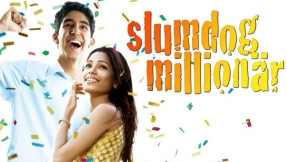
Undoubtedly, 2008 was one of Hollywood’s greatest years. Flicking through major blockbusters, emotionally resonant dramas, and hilarious comedies, the calendar year was chock-a-block with award-worthy entertainment. That year, the Academy of Motion Picture Arts and Sciences was examined and scrutinised with microscope-like intensity. Examining the voting system with great interest, critics and film-goers alike believed action flicks like The Dark Knight deserved more consideration than they got.
As illustrated by Hugh Jackman in his opening Oscars Ceremony musical number, comic-book movies were in the process of taking over the world. However, epic dramas including The Curious Case of Benjamin Button showcased the immense worth of CGI story-telling and method acting. In addition, docudramas including Milk and Frost/Nixon looked into some of history’s most fascinating tales.
Much like the winners of preceding years, 2008’s victor has since been tarnish with a damp, heavy critical brush. After its 8-Oscar hall, Slumdog Millionaire was seen as the ultimate example of tried-and-true Oscar bait. Suffering severe backlash thanks to high expectations, many viewers refused to buy into its immense hype. Channeling its story through the Indian version of Who Wants to be a Millionaire, the film’s non-linear structure tracks back through Dev Patel’s character’s existence. From there, we’re shown his elaborate and contrived journey depicting his mother’s death, he and his brother’s descent into slavery, and an elongated love story guided by fate. In doing so, the believability factor was as laughable to mass audiences as the Bollywood dance finale. As the clock ticks down, we’re handed a peculiar fantasy about luck and love in a wholly horrific part of the world. Thanks to its presentation of the sub-continent, many complained about the movie’s stance against the western world. Presenting India as a fantastical dreamland, the narrative’s manipulative moments come of as forceful and unearned. Occasionally, the movie’s sympathetic side comes off like an extended Oxfam advertisement. Depicting an implausible rags to riches tale, this multi-continent romantic-drama occasionally crosses the line into pure sappiness.
Despite the complaints, Slumdog Millionaire has become a touchstone of technical wizardry within American cinema. Director Danny Boyle, known previously for Trainspotting and The Beach, was given a well-deserved career boost thanks to his award-winning effort. Winning Best Director for his achievements, his style made for a cheerful and delectable thrill-ride. Infatuated with the culture, his professionalism and spectacular flourishes easily eclipse the flaws. In spite of faeces-covered children and brutal torture sequences, his story-telling style here diverted significantly from earlier efforts. Thanks to this blinding romantic-drama, America and Britain have since given Boyle the credit he deserves. Following up Slumdog Millionaire with 127 Hours and Trance, his directorial flair and wide-ranging oeuvre continue to grow. In addition, Boyle fulfilled a hopeless dream by directing London’s 2012 Olympics opening ceremony. Like the film itself, Boyle proved that determination and humility can lead to true greatness.
Winner’s score:
Rating:
The year:
Rating:
2009 – Winner: The Hurt Locker
Other Nominees: Avatar, The Blind Side, District 9, An Education, Precious, Inglorious Basterds, A Serious Man, Up, Up in the Air
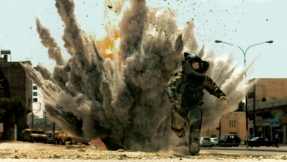
Still recovering from a crippling writer’s strike, Hollywood struggled to deliver the blockbusters and Oscar hopefuls critics and film-goers were looking forward to. Busy filling release dates left and right, audiences were given underwhelming blockbusters throughout most of the year. However, by the skin of its teeth, Tinseltown still delivered a hearty bunch of award contenders. For some reason, 2009’s ceremony extended its Best Picture category from five movies to nine.
This decision, despite giving more features the credit they deserve, was baffling to say the least. Despite being seen as a manipulative marketing decision, this paved the way for several smaller features to shift up the ranks. Sci-fi actioner Avatar gave us new CGI, motion capture, and 3D story-telling techniques. In addition, enjoyable efforts including Up in the Air, Up, and Inglorious Basterds were added to the extensive list.
The year’s Best Picture winner pushed the boundaries whilst boosting its director and stars. The Hurt Locker, a war flick capturing a small-scale conflict and gripping character arcs, is easily as magnetic and invigorating as Three Kings or Jarhead. Depicting a harrowing microcosm of the War on Terror, acclaimed filmmaker Kathryn Bigelow and writer Mark Boal took it upon themselves to discuss this polarising issue with class. Focusing on its bomb expert characters with sniper-scope-like accuracy, the entire feature runs along a thin line between gritty drama and pulsating action. In the first scene, Bigelow’s style and vigour crash into one another. Bolstered by a Guy Pearce cameo, the opening depicts a bomb disposal operation gone horribly wrong. Featuring that iconic slow-mo explosion, this set-piece proves Bigelow’s immense worth within this male-dominated genre.
In addition, Boal’s story delivers an atmospheric sparring match between three contrasting personalities. Jeremy Renner, playing a soldier brought in to lead a newly broken squad, establishes his flawless and likeable screen presence. Toying with good and bad personality traits, his character arc makes for an intriguing story of a man dicing with death day in, day out. Despite being bolstered by The Town and Mission Impossible: Ghost Protocol, it was this small-scale action-thriller that pulled him out of obscurity. In addition, character actors Anthony Mackie and Brian Geraghty were given a chance to prove themselves. Thanks to this opportunity, these two have gone on to appear in some of the biggest blockbusters of the past few years. Despite all this, this character study would be nothing without Bigelow’s cautioning hand. Fighting off ex-husband James Cameron behemoth, Avatar, her emotionally resonant and thrilling war-drama is Hollywood’s version of David – easily defeating its fearsome, Goliath-sized competition.
Winner’s score:
Rating:
The year:
Rating:
2010 – Winner: The Kings Speech
Other Nominees: 127 Hours, Black Swan, The Fighter, Inception, The Kids Are All Right, The Social Network, Toy Story 3, True Grit, Winter’s Bone
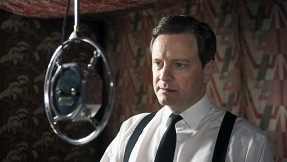
Ushering in a new decade, the world looked set to wash away its sins and start anew. Cinema-goers, needing something (anything) to distract them from major political and economic crises, took to the big screen for slices of escapism. However, with underwhelming blockbusters all the rage that year, people lost hope in this higher form of entertainment. Thankfully, the Oscar season came along, giving us more than one note-worthy success story to shout about.
Thanks to the insatiable pairing of director David Fincher and writer Aaron Sorkin, The Social Network ended up being a scintillating docudrama about the small-scale concept that eventually turned into social media smash Facebook. In addition, we got several Oscar contenders fuelled by breath-taking performances. The Fighter gave us Christian Bale and Melissa Leo’s most exciting performances. Black Swan gave Natalie Portman a well-deserved golden statuette. meanwhile, True Grit showcased Jeff Bridges and newcomer Hailee Steinfeld’s immense talents.
Despite the acclaim-worthy features on offer, the least-deserving entry took home the big awards. Winning Best Picture, Best Director, and Best Original Screenplay, The King’s Speech was a massive success unlike any other in recent memory. Powered by brilliant performances and magnificent visual flourishes, the movie carries its positives to the finish line. The story, based on the real-life conflicts King George VI went through in the 20th Century, plays out like a Forrest Gump version of Royal history. In the first scene – despite being an effective few moments of celluloid – the lead’s personal issues are hammered home beyond belief. In fact, the movie’s biggest flaw is its utter lack of subtlety. George’s speech impediment is presented as the be all and end all of Great Britain’s existence. Beyond this, the bromance between Colin Firth and Geoffrey Rush becomes wholly predictable and sappy well before George’s final-act successes.
Establishing itself as the ‘British’ entry, the typical narrative came across like a hand trying to reach out at the all-important statuettes. However, director Tom Hooper enlivened a dry and monotonous affair with picturesque visuals and his spectacular attention to detail. Throwing bright colours, inventive camera angles, and hues at each frame, his magnetic style established his talents on a world stage. Moving on to Les Miserables two years later, Hooper’s class pushed this mixed-bag effort over the line. In addition, Colin Firth, Geoffrey Rush, and Helena Bonham Carter have all since been given significant career turnarounds. Firth, fusing his boyish charm with the character’s ticks, proves himself to be one of this generation’s greatest talents. Deserving of his Best Actor gong, the British icon is worth his weight in Royal Gold. Despite being the worst of a brilliant bunch, this period drama delivers enough glowing positives to ever-so-slightly hold up.
Winner’s score:
Rating:
The year:
Rating:
2011 – Winner: The Artist
Other Nominees: The Descendants, Extremely Loud and Incredibly Close, The Help, Hugo, Midnight in Paris, Moneyball, The Tree of Life, War Horse

Reflecting upon the political and cultural issues of the 200s, film industries everywhere spent millions of dollars discussing the world’s problems. With darkness inflicting most, if not all, blockbusters and Oscar contenders, the gothic tones eventually became poisonous and exhaustive. Thankfully, 2011 became a year chock full of kooky, light-hearted efforts.
Bolstered by big-budget extravaganzas including X-Men: First Class and Super 8, the age of the fun motion picture looked set to return. In addition, the year’s Oscar contenders were more enjoyable and breezy than that of preceding years. Alexander Payne’s The Descendants delivered a hearty familial drama bolstered by George Clooney’s magnetism. Hugo was highly praised thanks to Martin Scorsese’s ode to the silent film era. In addition, movies like Midnight in Paris and The Help made for pleasant trips to the cinema.
Despite the aforementioned nominee’s glowing positives, the eventual winner was the lightest and sweetest of them all. The Artist, bringing back a once-dead movement, was a fun and intelligent ode to Hollywood’s golden age and simpler times. This project is riddled with interesting details and achievements. As a silent film, the movie won audiences over by being entirely different to everything around it. Taking on a project of this size, The Weinstein Company handed the reigns over to French directing maestro Michael Hazanavicius. Having strived in his native land for decades, the filmmaker took on Hollywood and delivered a knock-out punch. Paying homage to the world’s biggest film industry, The Artist delivers one man’s ode to a period based around physical humour, attention to detail, and star power. Set in black and white, this boisterous surprise hit came out of nowhere to pip The Descendants and Hugo to the post.
Despite its unique ideas and intriguing production schedule, the film has since come under fire for being “that silent film”. Pulled apart by critics and film-goers, people have, ironically, raised their voices at the Weinsteins for pushing this effort across the finish line. Robbing major awards from Clooney and Scorsese, its Oscar wins delivered more questions than answers. Like The King’s Speech, the movie tries too hard to mingle with Academy voters. From the get-go, the movie’s nostalgia glow was seen to turn potentially gritty material into corny and unexacting fluff. With its twee characters and ultra-light tone, the movie’s emotional side failed to impress. Despite this, its three leads carried an otherwise cliched and tiresome effort. Jean DuJardin, having since moved on to high-powered pictures including The Wolf of Wall Street and The Monuments Men, delivered an energetic and multi-layered performance as the sympathetic lead. Berenice Bejo, losing out to Octavia Spencer for Best Supporting Actress, excels throughout. Meanwhile, Uggie the dog provided wonderful moments. Despite its problems, the movie delivers enough distractions and memorable moments to touch people’s hearts. Like the film itself, many were left speechless.
Winner’s score:
Rating:
The year:
Rating:
2012 – Winner: Argo
Other Nominees: Amour, Beasts of the Southern Wild, Django Unchained, Les Miserables, Life of Pi, Lincoln, Silver Linings Playbook
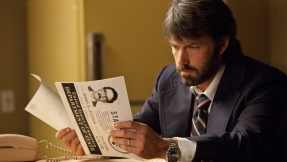
Giving Hollywood cinema a remarkable boost, film-goers gave more money to ticket booths in 2012 than that of any other year. With Franchise adrenaline-shots like The Avengers, The Dark Knight Rises, and The Hunger Games aiding the industry, 2012 was a calendar year for multiple filmmakers, stars, and studios. However, despite certain blockbusters’ mass critical and commercial acclaim, the Oscar contenders came off just as magnetic and energetic.
This year’s season delivered several hits utilising unforeseeable technological advancements. The Hobbit: an Unexpected Journey tried and failed to push the 48-Frames-per-second concept. Life of Pi used 3D and CGI technology to craft an imaginative and fascinating wonderland. In addition, Les Miserables succeeded thanks to raw, unrelenting on-set performance recording. Meanwhile, Lincoln and Django Unchained tackled slavery in vastly different ways.
Given the strong pack of nominees, the winner had to stand out as a powerful, resonant, and well-constructed effort. Sadly, the Academy made several bizarre and illogical choices on the road to the ceremony. Deciding to push Ben Affleck out of the Best Direction category, many were left scratching their heads. Fortunately, Argo ended up taking home some major awards. This unique and potent spy-thriller, pushing the US Government’s buttons, is a well-deserved victor for multiple reasons. Based on true events, the narrative draws the line between fantasy and reality spectacularly. Given the peculiar premise, the story examines its monumental political conflict and selfless characters throughout the efficient run-time. Compared to most spy-thrillers, its levels of charm and subtly elevate it far above most Tinseltown efforts. Balancing profound plot-threads and intensifying set-pieces, Affleck’s latest directorial effort eclipses the other nominees with ease. If anyone tells you otherwise, Just say: “Argo f*ck yourself!”
Most importantly, given Affleck’s wavering reputation over the past two decades, the movie solidifies his overwhelming return to form. Bouncing off his first two features, Gone Baby Gone and The Town, his potent story-telling style and impressive flourishes crash straight through his Oscar-winning feature. Taking full control of the set whilst standing up to studio heads, his remarkable ability behind the camera rings true. The last third, showcasing the notorious thrilling and momentous dash to freedom, marks one of modern cinema’s greatest climaxes. In addition, dashing between Iran and Los Angeles, the pulpy 70s aesthetic mixes style with substance. Beyond this, however, his actor-direction makes for the year’s most compelling feature. Affleck’s subdued turn takes charge, with the actor’s signature ticks defining his character. In addition, stunning performances from Bryan Cranston, John Goodman, and Alan Arkin solidify the movie’s star-powered glow. In crafting one of the past decade’s most lively and honest docudrama’s, Argo marks an actor/director’s redemption unlike any other.
Winner’s score:
Rating:
The year:
Rating:
2013 – Winner: 12 Years a Slave
Other Nominees: American Hustle, Captain Phillips, Dallas Buyers Club, Gravity, Her, Nebraska, Philomena, Wolf of Wall Street
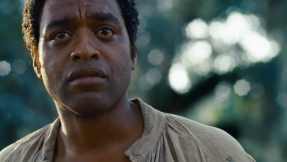
Peeling back the layers of past events, 2013’s Oscar crop divulged into the nitty-gritty of docudrama cinema. With Hollywood giving each project everything at its disposal, these movies, more often than not, craft invigorating re-creations of fascinating real-life stories. Causing controversy left and right, these movies stood out as honest, boisterous, and pulsating accounts of unbelievable events. These movies made us ask: “Where do we draw the line between reality and fantasy?”.
American Hustle, despite being powered by wigs and costumes, excelled thanks to its post-economic-crisis commentary. Presenting con-men as sympathetic anti-heroes and FBI agents as irritating narcissists, this and The Wolf of Wall Street became aggressively anti-corporate black comedies. However, the surrounding docudrama nominees revelled in intensifying conflicts. Captain Phillips, Philomena, and Dallas Buyers Club tore chunks off their stories whilst delivering heart-breaking turns from established actors. Truly, these are all thesis-worthy efforts.
Above all these, However, Best Picture winner 12 Years a Slave stood head and shoulders above the pack. From the ground up, artist turned director Steve McQueen turns this humbling narrative into a confronting and irresistible work of art. McQueen, having previously made visceral dramas including Hunger and Shame, is unafraid of plunging his hands into the darkness and pulling out something truly awe-inspiring. Unlike with his aforementioned efforts, his style coupled perfectly with the narrative at hand. As a British filmmaker, giving him one of American history’s darkest tales seemed like a peculiar decision. However, with an objective viewpoint in tow, this narrative was honoured with his brutally honest style. Beyond this, the story itself is worth delving into multiple times. Based on Solomon Northup’s memoirs, the story follows his heart-wrenching journey from free man to slave over an extensive period.
Having been a year since its Toronto International Film Festival première, 12 Years a Slave‘s reputation has soared over this significant period. Unlike previous victors, the movie never succumbs to numbing comedic schtick or Oscar-bait material. Maturing significantly after each viewing, this effort undoubtedly deserves its many victories. Most importantly, the movie stands the test of criticism and time. McQueen’s direction, John Ridley’s screenplay, and the performances come from a valuable place. Chiwetel Ejiofor, despite losing out to Matthew McConaughey, delivers his best performance to date as the all-powerful lead character. In addition, supporting players like Michael Fassbender, Paul Dano, and Benedict Cumberbatch proves themselves to some of this generation’s most fascinating A-listers. 12 Years a Slave is one of this generation’s most admirable accomplishments.
Winner’s score:
Rating:
The year:
Rating:
Certainly, the past few years’ Oscar winner and nominees have been a mix of the glorious and the undeserving. With Hollywood cinema having drastically changed over such a short period, there are many similarities and differences between each year’s Oscar seasons. For the most part, criticism, from critics and film-goers, has either raised or bludgeoned certain pictures. Oscar-baiters including Slumdog Millionaire, The Artist, and The King’s Speech have degraded drastically overtime. Turning potentially confronting material into unexciting fluff, these movies have become transparent to most people. As predictable and mindless pictures, they ask very little of the audience. On the other side of the coin, winners like No Country for Old Men and 12 Years a Slave deliver the style, verve, and originality needed to create truly unforgettable Best Picture winners. Only time will tell whether 2014/15’s winners and nominees will either end up in the same situation or change the game entirely.
What do you think? Leave a comment.










Foxcatcher is likely to win best picture 2015.
12 Years a Slave is a Best Pic material that feels like right. Whoever wins the Baftas is the new (or remains) frontrunner.
1) A Most Violent Year
2) Foxcatcher
3) Unbroken
4) Fury
5)Birdman
6)Boyhood
7) Gone Girl
8) Into the Woods
9) Whiplash
10) Kill the Messenger
I’m rooting for Birdman, Interstellar, Gone Girl, Inherent Vice, Unbroken, Foxcatcher, Into The Woods, Boyhood, and Grand Budapest (even though it was released too early to get nominated)
i liked grand budapest hotel, but sadly i highly doubt it’ll get a best picture nom
Years from now, people will still watch “Gravity” and be moved. It is a film that will be enjoyed over and over and discovered by new generations. I think back on “Reds” losing to that runner movie and all the magnificent performances and films that were not even nominated (Do The Right Thing, Edward G. Robinson in Double Indemnity, etc.) and take heart that, much as I love the Oscars, the truly great movies and performances will endure, statue or no statue.
So looking forward to upcoming quality movies.
Boyhood & Foxcatcher. Unbroken seems the most down the Academy alley.
I don’t know about Argo, never liked it as much as the academy did. Oh and I read Unbroken, and can honestly say that it was one of my favorite books of all-time. Most people I know who have read it have talked about how amazing of a movie it would/could make. I’m calling it now!
I’d go:
1. Foxcatcher
2. Gone Girl
3. Unbroken
4. Interstellar
5. Trash
6. Inherent Vice
7. Mr. Turner
8. Jersey Boys
9. Get On Up
1. Foxcatcher
2. Unbroken
3. Fury
4. A Most Wanted Year
5. Gone Girl
6. Inherent Vice
7. Interstellar
8. Big Eyes
9. Trash
10. The Judge
This article is extraordinary, the words jump off the page and come to life. Your wit is charming and engaging. This article can be used for a point of reference for critics. I really liked the movies from 2010; 127 makes me check in when I go hiking. Black Swan made me take a deeper look at how we perceive ourselves and Toy Story 3 took me by surprise and darn it made me cry! Thank you for this lovely article.
12 Years a Slave has hold up really well! Can’t wait for Foxcatcher and Interstellar. Those two are my most anticipated films of the year.
I would love to see Gone Girl to be nominated – seeing I loved the book so much – and I think ultimately it will get nominated.
I would also love to see Foxcatcher go the distance and win BP, along with Miller for Director, Carell for Actor, Ruffalo for Supporting Actor, etc.
Looking forward to Birdman, Foxcatcher, and Gone Girl. Boyhood is a big favorite of mine, Richard Linklater deserves a Best Director nomination.
I really don’t know how this next award season is going to be, especially since the release time for the season is just coming up. So far, I’d love to see Boyhood nominated and if possible Snowpiercer.
Predicting this early on is fun – throwing it at the wall, seeing what sticks, and then looking back and comparing with what actually happened when all is said and done next year.
This is the best time of the year for film fans like all of us. I like to believe that the Oscar season will kick off this weekend with Gone Girl. I feel David Fincher got the short end of the stick in 2010. Even the other 4 nominated directors (and a few of the non-nominated ones)did a better job than Hooper on The King’s Speech.
Along with Fincher, I expect Christopher Nolan to blow us all away with Interstellar in November and Bennett Miller to deliver a knock-out with Foxcatcher. I’m unbelievably excited for those three and the numerous other titles I don’t have the time to type up here.
Terrific article with great analysis in all those years. Enjoyed reading this very much.
David Fincher and Christopher Nolan both look to have great films coming out. I hope they live up to the hype because I would like to see one of them finally win a best director award.
Really interesting article. It’s cool to look back on Oscar winners and nominees and see how films have changed over the past few years. I definitely need to check out some more of this year’s blockbusters before the Oscars!
I think Boyhood and Interstellar are probably dead certs, but I’d love for Grand Budapest Hotel and Gone Girl to get a nod. All depends on what the rest of the year brings I guess!
Really interesting as a film head. This is simply amazing!
I love this idea of looking back at past Oscar seasons and seeing how the atmosphere of the time has an impact on the winning film. I am still lamenting the fact that The Hurt Locker won out over District 9. This year, I am pulling for Nightcrawler. Exciting, original, smart writing. Gyllenhaal is electric.
This is my favorite time of year for film based on the reasons you explained. This summer was terrible for film and I have been enjoying the better options. I have only seen Gone Girl thus far and while I doubt it gets much attention in the Best Picture department, I think that Rosamund Pikes performance deserves consideration for awards.
I know that there was a lot of hype for No Country for Old Men (at least among my classmates), but I feel that as it has aged it has become forgotten, which affirmed my suspicion that the film was overrated.